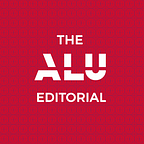The Near Accident That Will Change eSwatini: Andile Mhlanga, ALU ’15
by Hope Mutua | ALU ‘16
In a campus full of entrepreneurs, founders, presidents, recording artists, radio gurus and many more talented folk, it’s easy to pass by the subtle game changers. They stay enclosed in their private spaces, sometimes wondering out to see a friend here and there. Yet, though they may not be in the front of every news piece, these students are subtle game changers, slowly developing one solution after the other for Africa.
When I approached Andile Mhlanga to interview him, his first reaction was “I don’t really have super exciting stories about myself”. And yet, over two hours later of seamless conversation, dancing from one fascinating topic to another, I discovered that Andile was an amalgamation of humor, curiosity and a niggling desire to change his home country.
But what made him into the man he is today?
Growing up, his mother’s influence was cardinal in his upbringing. Andile vehemently denies being a mother’s boy, however, as he narrates of how she raised him, you can’t help but notice their strong bond. His childhood was simple. He grew up in Swaziland, a nation intricately woven in culture and tradition. In between going to school and playing with the kids next door, he sometimes found time to dabble in the mysteries of love. I’m curious to know about this.
“I remember my first girlfriend. She thinks she broke up with me, but I really was the one who did it first” he said with a cheeky smirk on his face.
“Are you sure” I joke. His maintains his stance and then slyly moves me on to the next conversation.
We start talking about his passion for changing the Swazi government. Also known as eSwatini, Swaziland is one of the few African countries still ruled by monarch. It’s population of just about over 1,000,000 people has slowly built up their economy that is often overshadowed by South Africa’s own economy. Like Andile, many Swazi youth often study abroad, but come back home to settle down as their desire to make a difference in their own backyard prevails. For Andile, it wasn’t until he almost tasted death, that his desire to impact eSwatini’s infrastructure sparked. He remembers this specific incident that though it almost knocked him dead, it set him on a greater path.
“I remember I was walking home after a long day at school. For some reason, I’d refused to use public transport — I wanted to save my little money for something else. Funny thing, it was quite a long walk. But I was determined to save that money. And so as I idly walked by the side of the road, this car suddenly appears out of nowhere. It swerves close to me and forces me off the path”.
At this point of the story, his zones out entranced by the image he has been painting. I think maybe I’ve lost him to his recollection of that event’s impact. A time when you see death and life flashing before you. After sometime, he returns from his trance.
“It was like in the movies. Everything slowed down. But I wasn’t hit somehow. The driver rushed off, not stopping for a second to see if he had hurt me. I was left dumbfounded with what had almost happened”.
It wasn’t until later on, that he had his epiphany. Like many developing countries, eSwatini’s infrastructure was less than ideal. Roads that were broken down with portholes reminded a young Andile of the many challenges that plagued his country. This almost accident birthed an idea for how he would bring visible change to Swaziland. Almost 6 years later, his vision has intensified.
“I don’t like poverty. Poverty annoys me. And I’m not mad at the poor people. But at those who can do something but do nothing. And for a long time, I’ve been one of those. But I think I’m changing that. I’m still writing my story. I took engineering to learn the basics. Along the way, I’ve developed a better understanding of how I can contribute to the development of my nation. You see infrastructure is a large industry. There is the physical infrastructure and the digital one. I want to leave my footprint in the latter. Helping governments manage their resources better through improved data and digital infrastructure”.
As we close off, I’m left impressed with Andile’s vision. I finally ask him, “what is the one thing you want people to know when they read this article?”
“That I’m available” he wittingly responds with the charm of a debonair. So ladies and gentlemen, in case you wondering, I present to you Andile Lizwelethu Mhlanga. Aspiring chef. Trying comedian. Curious inventor. But most importantly, a young leader on a mission to bring great impact to a small nation.
